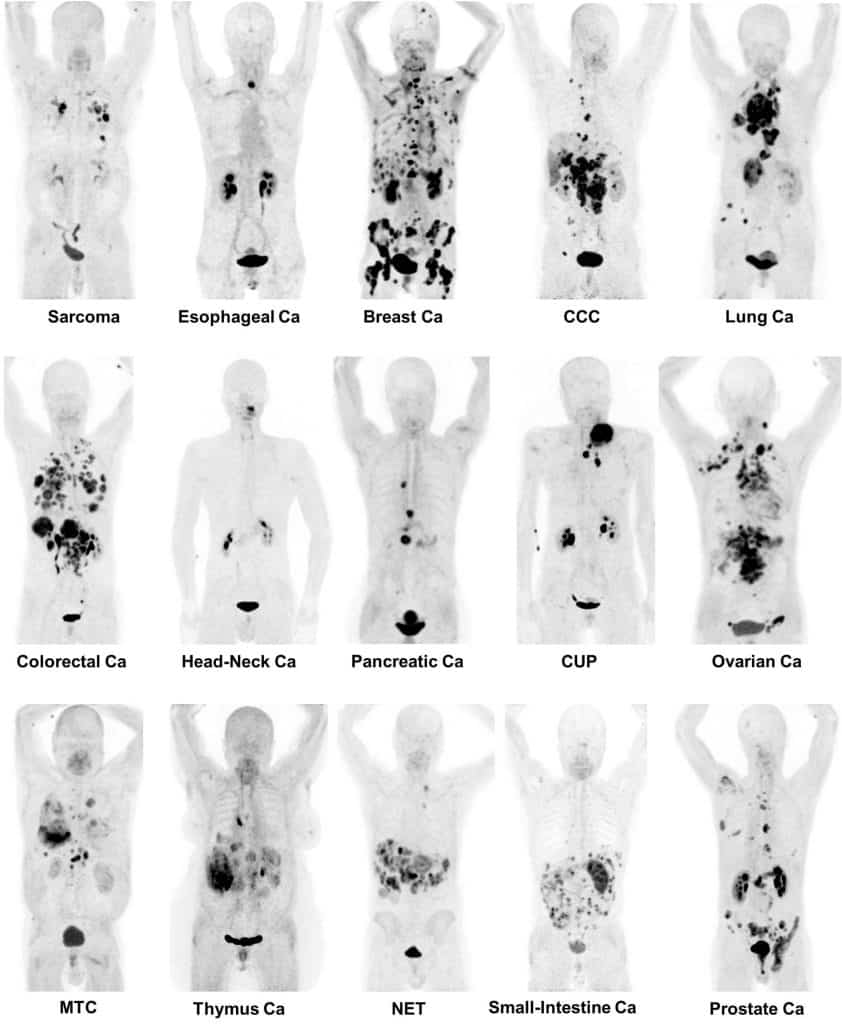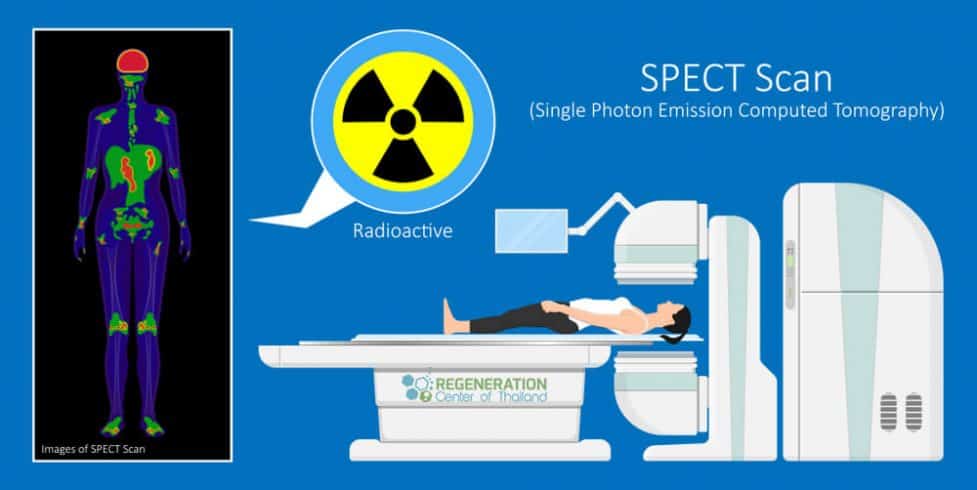According to the The Journal of Nuclear Medicine, a new class of radiopharmaceuticals has been developed to non-invasively identify over 30 types of malignant cancerous tumors.The latest Radiotracer uses a modified PET/CT scan (positron emission tomography/computed tomography) to image a large variety of tumors in various stages with high image contrast, paving the way for dozens of potential applications in functional medicine, gene therapies and cancer immunotherapies. The Ga-FAPI radiotracer works by targeting fibroblasts that are associated with various types of cancers and typically contribute up a large quantity of a tumor’s mass. Cancerous fibroblast cells differ from normal (non-cancerous) fibroblasts based on the expression of the FAP proteins (fibroblast activation protein). Fibroblast activated protein inhibitors have been used in several conventional anticancer medications and are now being used with NK cells and in radiopharmaceutical technologies for diagnosis purposes.

Researchers from the Society of Nuclear Medicine and Molecular Imaging (SNMMI) used modified PET/CT scanners to check 80 patients with 31 different kinds of cancers, to see if they could differentiate between metastatic, primary & recurring cancers. Based on the test results scientists found that the difference between metastatic lesions and primary tumors was not significantly different however.
The Ga-FAPI radiotracer was especially accurate in identifying the following types of cancers:
- Esophageal
- Cholangiocarcinoma
- Lung cancer
- Breast cancer
- Sarcoma
The Ga-FAPI radiotracer was equally as effective as traditional radiology scans while observing the following cancers:
- Head-neck cancer
- Colorectal cancer
- Hepatocellular cancer
- Prostate cancer
- Pancreatic cancer
- Ovarian cancer
The Ga-FAPI radiotracer was less effective while observing:
- Adenoid cystic cancers
- Pheochromocytoma cancer
- Gastric cancers
- Renal cell cancer
- Differentiated thyroid cancers
The potential benefits of Ga-FAPI radiotracers also include patients not having to fast or recline in specific position during the scans.
The improvements in patient comfort and work-flow for oncologists working in regenerative medicine are also noted as major benefits compared to current technologies.

